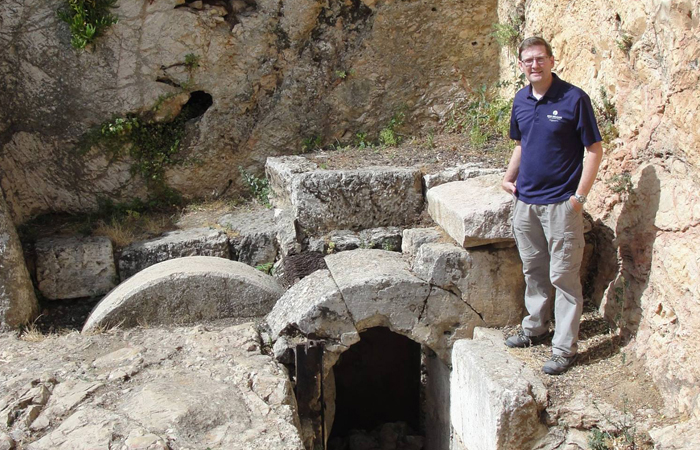
FIRST-PERSON -- “So what does this prove?”
Someone asked this well-intentioned question about New Orleans Baptist Theological Seminary’s ongoing excavation in Israel of the Tel Gezer water system after I posted an article a few years ago. The truth is, our major find that season did not “prove” anything in the Bible.
Archaeology has done much to shed light on the Bible and sometimes archaeologists uncover evidence that affirms key aspects of the biblical story. The Dead Sea Scrolls provided very early copies of most Old Testament books and gave further evidence to the reliability of Scripture. King David has been attested through inscriptions. The unearthed ruins of biblical cities illustrate how well biblical writers understood the geography of the land. But more often than not, the finds at sites in Israel are more mundane in nature, primarily dealing with daily life of ancient peoples.
This leads some to ask why biblical archaeology is important to Christians. For me, an archaeologist with seven dig seasons under his belt, the answer is context and a love for Scripture. I think the same can be said for travel in the Bible lands.
Archaeology creates a framework for more informed, thoughtful study of the Bible. For me, these are great reasons for evangelical Christians to keep digging.
In 2005, I took my first trip to Israel. I expected the trip to be a spiritual mountaintop experience and it was in many ways. But, as I visited the places where Jesus walked, the Old Testament cities and Jerusalem, it was the lay of the land and the ruins that made an impression on me. The world of the Bible was real to me in a new way. Travel like this creates a framework for study of the Bible. Archaeology provides clues to the way people lived so we can better understand the cultures and people mentioned in the text.
We cannot deny the significance of the cultural gap between us and the days when Abraham decided to reject the idols of his family and follow the one true God. Yet we are often tempted to read the Bible exclusively through 21st-century, post-resurrection eyes. The context gained from archaeology helps us step through the fog of time.
My thoughts about the Canaanites grew a few summers back at Gezer as we uncovered a series of handholds on the walls of the water system — an ancient “handrail” if you will. When I put my hands in these holds during our weeks at Gezer, I thought about the people who first used them and wondered about their lives. Who were they? What were they like?
The Gezer water system gave me a glimpse into the lives of an ancient people. This massive rock-hewn water system shows the great lengths these people had to go to secure a daily water supply.
Who knows how the people of Gezer viewed the water system. Maybe the Canaanites revered the system or dedicated it to some deity. Maybe they viewed it as a mundane part of their daily life the way we look at our morning commutes.
It is thoughts like these that motivate me as I seek to understand the people and places of biblical times. It is a quest for context and growing love for Bible study that keeps me digging. This is why I love biblical archaeology.
This summer, NOBTS continues the Tel Gezer excavation and the exciting news is that you can come and be a part of the dig – no experience required. The dig runs from May 27 through June 14, 2018. Participants may come one, two or three weeks, but preference is given to those who can stay the entire three weeks. Click Here to download the 2018 Tel Gezer Water System Expedition brochure to learn more about the costs and benefits of participating in this life-changing trip.
If you go and get your hands dirty excavating in the Holy Land, the world of the Bible will begin to leap from the pages. I promise that your love and appreciation for the Bible will grow.
--
Gary D. Myers is director of public relations at New Orleans Baptist Theological Seminary and is studying in the M.A. (Biblical Archaeology) program.